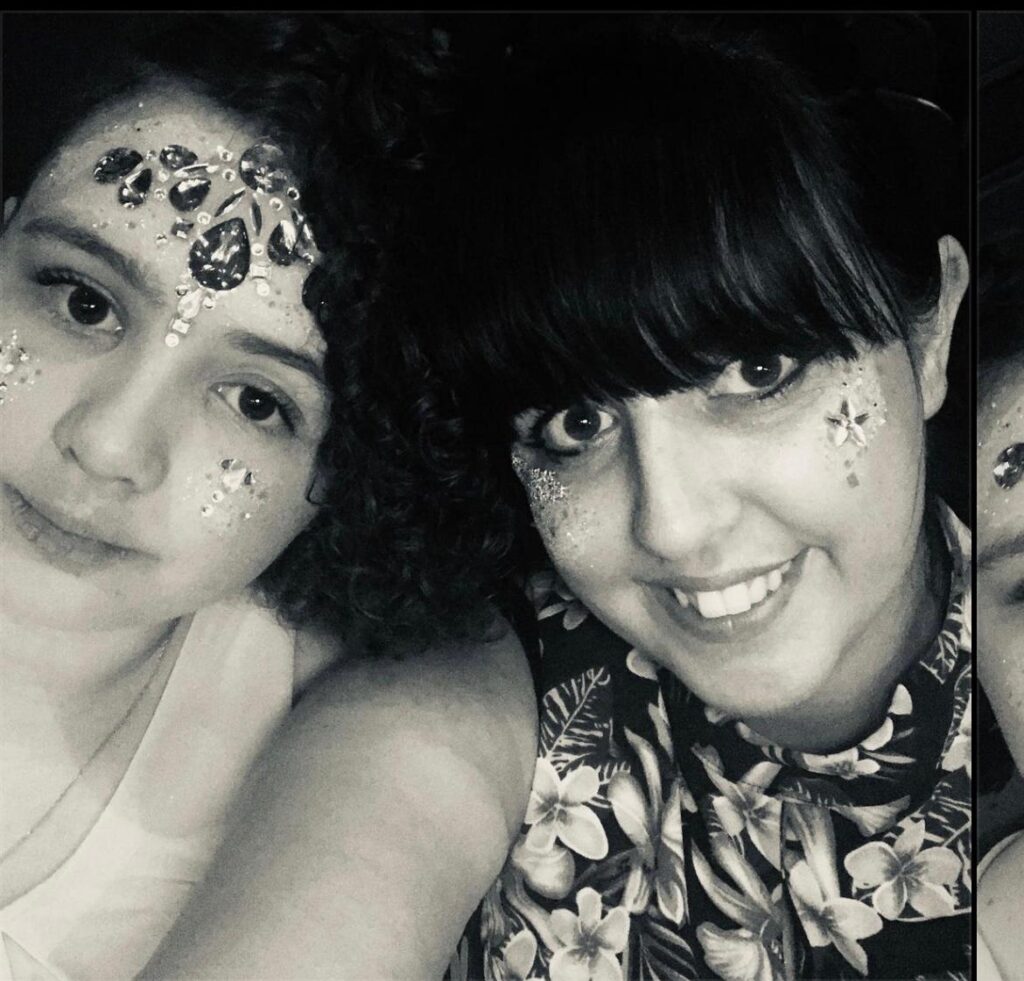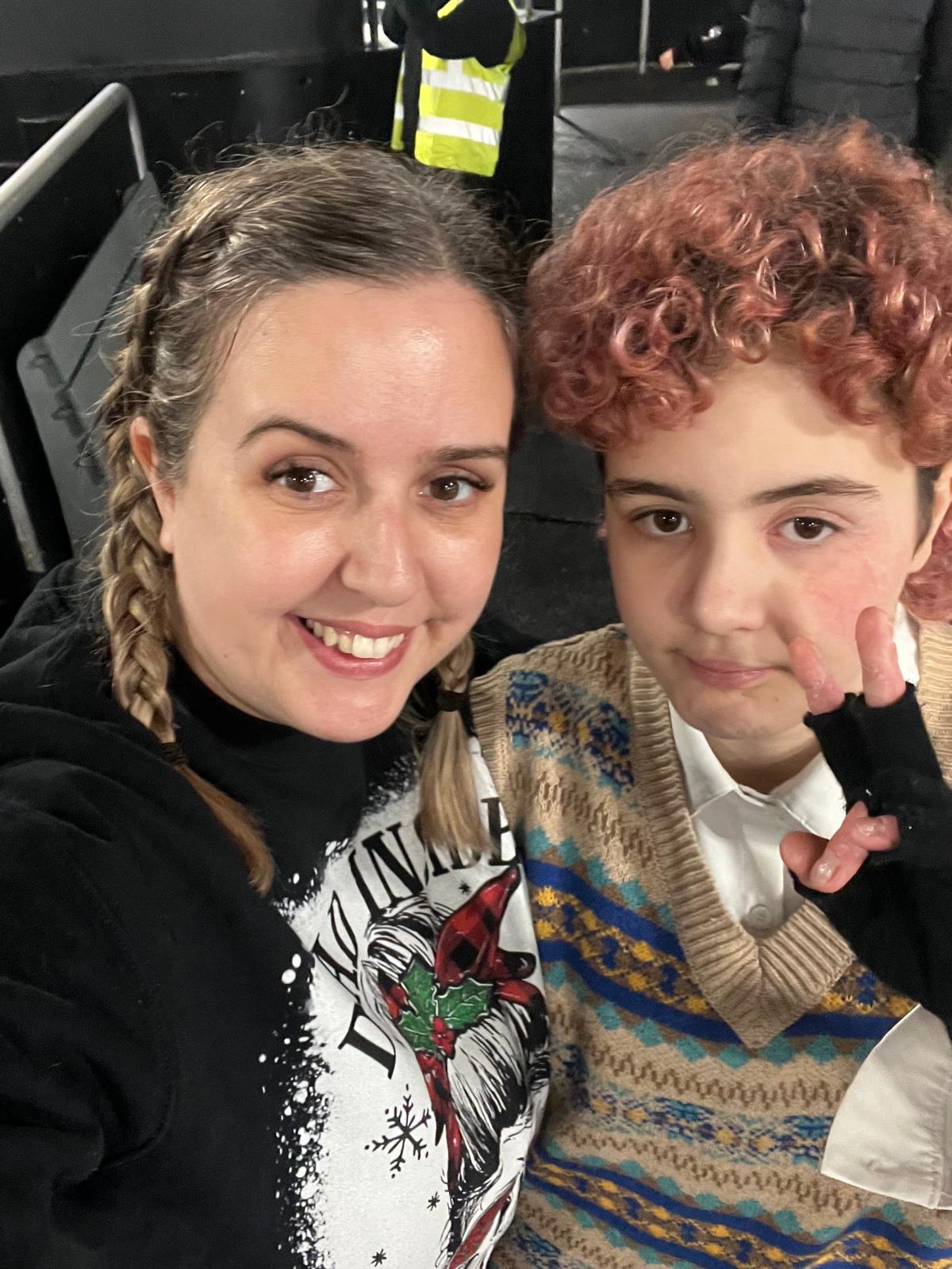New draft guidance from the UK Government has told schools in England not to teach children about gender identity. Rishi Sunak said this would ensure children are not “exposed to disturbing content”. The new curriculum will avoid any ideas that gender is a spectrum.
Pride & Joy spoke to Stacey Scott (she/her), a teacher-in-training in North Yorkshire, who has a transgender son. Stacey discusses how harmful these restrictions would be to the development and mental health of transgender and non-binary children.
“When I first found out teaching gender identity was being banned in primary schools, I just thought it couldn’t be true. It’s like we’ve gone back in time and the world is devolving, it’s just so unfair and unjust.”
Stacey’s son, Cecil (he/him), is 18 and came out as transgender four years ago.
“We were sitting in a cafe and he told me he was trans and I simply didn’t care, in the nicest way possible. I’ve always been a very accepting person and I think that’s why Cecil knew he could come out to me.
“We went out and bought him a whole new wardrobe and cut his hair. Then, when he turned 16, we legally changed his name so his deadname wouldn’t be on his GCSE certificates and his college application.
“We told his younger brother by buying a cake and putting up an ‘it’s a boy’ sign as if it was a baby ‘gender reveal’. My son was thrilled, he’d always wanted a brother.
“Cecil still has his troubles with gender dysphoria and his mental health, but the fact he was able to come out and be who he was when he was 14 was really important.”

Cecil has struggled with his suicidal thoughts in the past which have been linked to his gender identity.
“He has been hospitalised for his mental health a few times now. He’s been on the top surgery waiting list for a while so, for now, he feels like he can literally feel the gender dysphoria sitting on his chest.
“You can do so many things for your mental health, like go outside and get some exercise. But when you feel so uncomfortable within yourself and are wearing a binder which compresses you, it’s a vicious cycle.
“He was also really badly bullied at secondary school, and part of this was because he’s transgender. We live in a small-minded town and because parents don’t teach their children about different gender identities, they end up being ignorant towards anyone different.
“The ban on teaching gender identity will only make this worse. Children are already uneducated on different genders. Transgender students will feel even more misunderstood.
“My other son and I understand because we know Cecil. But for people who aren’t around transgender people, they need this education. People are scared of what they don’t know.
“Also, from a health point of view, without education, children won’t know what dysphoria is. They then won’t have the information to access support they need, or even know changing their name or having operations to make them feel more comfortable is an option.”
Gender dysphoria is a sense of unease that a person may have because of a mismatch between their biological sex and their gender identity. This sense of unease or dissatisfaction may be so intense it can lead to depression and anxiety.
“When Cecil has struggled with dysphoria in the past, he seemed like a different child. He was so angry all of the time and not doing very well at school which was unlike him. He was drawing away from me and I didn’t know why.”
Stacey, during her most recent placement in a primary school in North Yorkshire, has introduced queer literature to the children in her class.
“For an English project, we had to create a villain and a goody. I simply said the goody was a girl and the villain was non-binary. Not a single child batted an eyelid.
“This is because we’ve made them aware of LGBTQ+ issues. I even read a book called The Dysphoria Monster to a group of year 5s. Even if they aren’t part of the community themselves, it’s so important they’re aware so they grow up to be accepting and tolerant.
“So many parents worry that if children are taught about LGBTQ+ issues, their child will ‘turn’ gay. This is just not true, and who cares?”
Stacey feels like the new teaching legislation means we’re going back in time.
“It’s kind of like going back to the days where people didn’t talk about sexual abuse and it’s only now because it’s so openly talked-about that things have actually been done about in school. For example, we teach children about the ‘pants rule’.
“Children know where they should not be touched by other people now. This is so important and could save so many from
“Why wouldn’t we talk about transgender issues when it’s a reality for so many people?
“As a teacher, you have welfare responsibilities too. You have to make sure students know they can come to you about anything.
“If we don’t teach about gender identity, how are children going to know they can trust in their teachers to give the right advice?”
Stacey is one of many teachers who reject Sunak’s new policy. It is inherently anti-LGBTQ+ and will leave many children, and parents, with questions.
For any support, please go to prideandjoymag.co.uk


